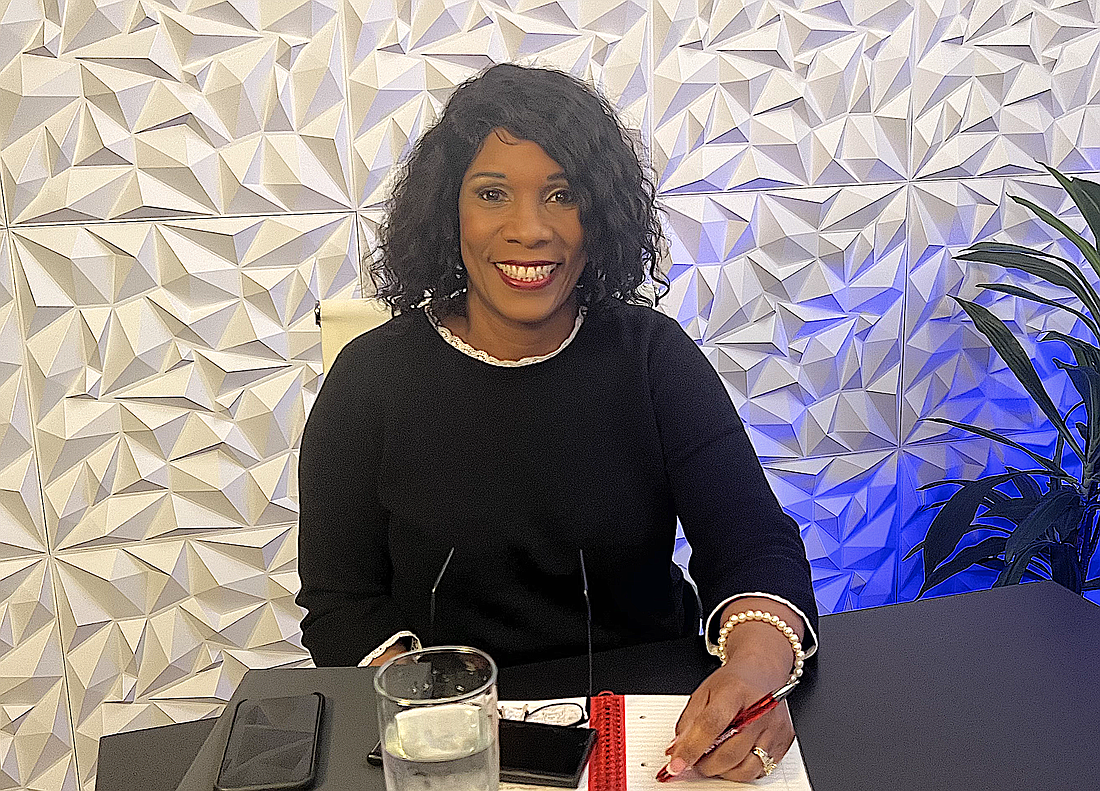- April 23, 2024
-
-
Loading

Loading

When Jearlyn Dennie asked what I wanted to talk about for our interview, I assured her that we wouldn’t talk about anything all that sensitive: just race, religion and politics.
Dennie has experience with each of those topics: She was the first Black woman in Florida to be elected as the chair of a county’s Republican Executive Committee, and she is also pastor of Reverse Church.
She met with me at the PMG Studio for an interview. You can watch the video on the Palm Coast Observer’s YouTube channel. What follows is an edited transcript.
Oh, School Board? I think School Board is important. Our children are important to us, and parental rights are important. Everyone should look at School Board races and vote for conservative candidates.
Absolutely. I want to say every candidate has a chance, especially if they're running on a good platform, and they communicate what they're going to do for the community. Just because someone registers Republican, Independent or Democrat doesn't mean that that's how they're going to vote.
My grandmother. She's a phenomenal woman. I think about all she has done for me to be where I am, for my mother to be where she is. She was a domestic engineer— she would clean houses for the rich and famous. In fact, she worked for the owners of Saks Fifth Avenue and several department stores.
Back in the day, when my mother was young, she couldn't go into white-only ice cream shops. So my grandmother got a job cleaning the house of a lady that owned an ice cream shop. She'd go dress up, stand in front of the ice cream shop, and the lady goes, “Dorothy, why are you out there? Come on in.” That's how my mother was able to have her first banana split, and my uncle a root beer float. So she was a problem solver.
It's important to get to know all people and not to judge someone by the color of their skin. What you can do to build that harmony is just listen.
When you think about what happened to George Floyd, everyone was outraged by that. The white American looked at it and said, “That was horrible.” But for Black Americans like me, we went, “Not again.” Just understand and empathize with those experiences, even though you may not have experienced them.
Family dinners. I have seven children, six grandchildren, and I'm down to one at home. Now she's a senior in high school. And she and I had dinner at the kitchen table. You know, it's always taught to make a point to have family dinner and to listen to what she has to say, into her perspective.
We should probably ask some of these local politicians. Number one, walk the walk, don't just talk it.
Well, it's not just that I posed as a homeless person, I've actually been homeless.
"We've had a manager of one of our department stores that I've actually helped go from being homeless to in a home. So homelessness isn't the ragged person that you think it is."
JEARLYN DENNIE
I do it to raise awareness for other people to realize that the face of homeless isn't what you think it is. It's the person that's in the grocery store that's waiting on you. We've had a manager of one of our department stores that I've actually helped go from being homeless to in a home. So homelessness isn't the ragged person that you think it is.
Most homelessness is situational: loss of job, there's a problem with health, or issues like that. There’s not really a huge chronic homeless problem here in Flagler County.
It gives me strength. It reminds me of who he is, especially when you're having a bad day.
I also pray with people all over the world. I have a prayer line on Tuesday and Thursday mornings at 6:30.
It teaches a discipline. It reinforces what you know, it reinforces my faith. And it allows me to connect with my father. I just listen.
"Moving forward." My sermons always go around what I'm learning that week, and then on Saturday nights, the Lord downloads it for me. Every time I've done a sermon in advance, Saturday night, he'll change it up. I always like a fresh new word from the Lord.
I always treat others as I would like to be treated. Even though I may not be in their situation, what if I was?
And love. Love people no matter what they look like.
I’m absolutely in witness protection. I am absolutely a living witness. God is good. He's worthy to be praised. And I'm an example of his grace, his mercy and his love.